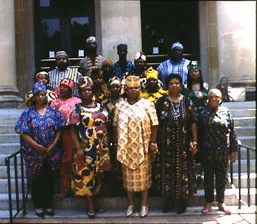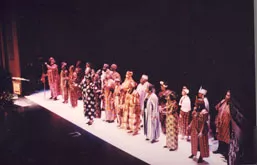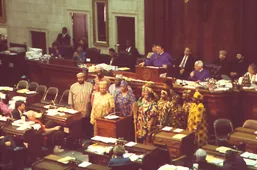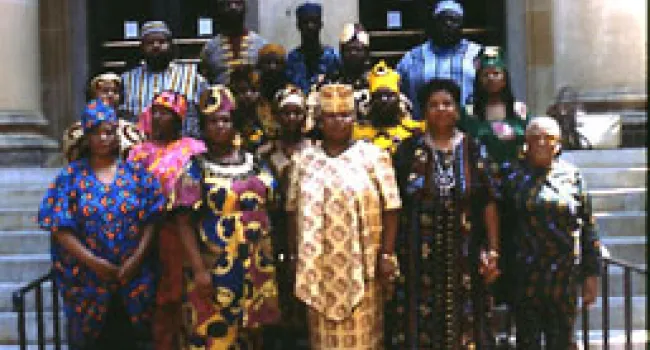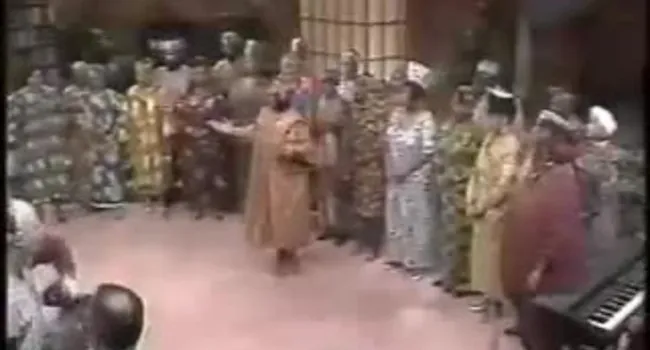Enslaved West Africans who were brought to the South Carolina and Georgia coasts came to an area where plantations were geographically isolated and owners were often absent. These conditions allowed the lowcountry slaves to retain more of their language, beliefs and customs than was possible in other areas. Many traditions were adapted to fit their new settings, yet they remained strong through succeeding generations. The resulting culture has come to be known as Gullah.
The Hallelujah Singers of Beaufort keep Gullah culture alive with their presentations of songs, stories and dances. The forty-member ensemble was organized as an ad hoc group for a fundraiser in 1990. The overwhelming response to the group led founder Marlena McGhee Smalls to organize a more permanent group. Drawing upon research, the knowledge of group members and interviews with seniors in the community, Ms. Smalls and the Singers have put together programs which combine Gullah music and narratives to illustrate what life was like for their ancestors. Yet anyone who sees the group perform also comes away with the knowledge that Gullah is a living, thriving culture.
The Hallelujah Singers have performed throughout South Carolina and beyond, and last year performed at a Washington, D.C. benefit at the invitation of Hillary Clinton. As their audience grows, so does their opportunity to educate the public about the beauty and vitality of Gullah culture. The Hallelujah Singers received the Jean Laney Harris Folk Heritage Award in 1994.
